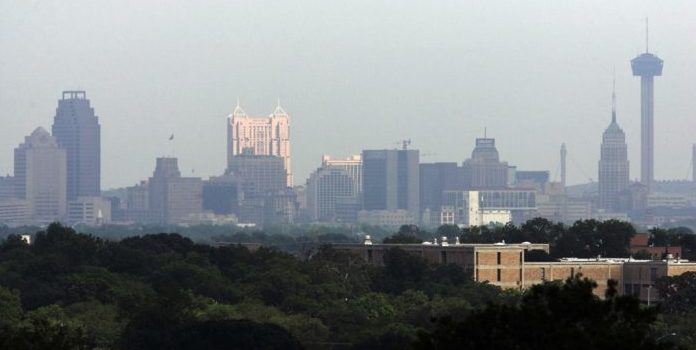(Headline USA) Eight of the 10 largest cities in the U.S. lost population during the first year of the pandemic, with New York, Los Angeles and Chicago leading the way, leftist enclaves where misguided policies have led to record crime, homelessness and drug abuse.
Between July 2020 and July 2021, New York lost more than 305,000 people, while Chicago and Los Angeles contracted by 45,000 residents and 40,000 people, respectively.
Although San Francisco’s not among the 10 largest cities, almost 55,000 residents left that city, or 6.3% of its 2020 population, the highest percentage of any U.S. city.
Among the 10 largest U.S. cities, only San Antonio and Phoenix gained new residents, but they added only about 13,000 people each, or less than 1% of their populations, according to 2021 vintage population estimates.
Among the largest U.S. cities, Austin and Fort Worth in Texas; Jacksonville, Florida; Charlotte, North Carolina; and Columbus, Ohio also registered modest population gains, red-state territory, for the most part, where sound policies led to quicker and safer reopening from the pandemic.
Other cities that grew more than 5% were North Port and Port St. Lucie in Florida; Spring Hill, a city near Nashville, Tenn.; and three Idaho cities, Caldwell, Meridian and Nampa.
The pandemic and the lockdown that followed in spring 2020 made living in a crowded city less appealing for a time, and those who could leave—workers who could do their jobs remotely, for example—sometimes did.
The radical leftist politics and violent crime that took root in many of the major metropolitan areas also are likely to have been contributing factors, as were the excessive taxation and cost-of-living in Democrat-led municipalities.
It remained unclear what impact the migration might have on the former urban-dwellers’ new destinations. Some Republican leaders, such as Florida Gov. Ron DeSantis, have actively warned blue-state newcomers to check their politics at the door lest they lead to the same sort of systemic failures.
Demographer William Frey of the far-left Brookings Institution said he believes the population declines in most of the largest U.S. cities from 2020 to 2021 are “short-lived and pandemic-related.”
When it came to growth rates, as opposed to raw numbers, the fastest-growing cities with populations of at least 50,000 residents were in the suburbs of booming Sunbelt metro areas. They included Georgetown and Leander outside Austin; the town of Queen Creek and the cities of Buckeye, Casa Grande and Maricopa, outside Phoenix; the city of New Braunfels, outside San Antonio; and Fort Myers, Florida. They had growth rates of between 6.1% and 10.5%.
As metro Austin has grown by leaps and bounds, so has Georgetown, located more than 25 miles north of the Texas capital, said Keith Hutchinson, the city’s communications manager. The city grew by 10.5%, the most in the nation last year, and now has 75,000 residents.
“It’s not really a surprise,” Hutchinson said. “People are moving here for jobs.”
The estimates also showed population declines of 3% to 3.5% in New Jersey cities outside New York, such as Union City, Hoboken and Bayonne. Similar declines occurred outside San Francisco in Daly City, Redwood City and San Mateo, as well as Cupertino in Silicon Valley.
Lake Charles, Louisiana, which was devastated by Hurricane Laura in 2020, lost almost 5% of its residents, the second-highest rate in the U.S. behind San Francisco.
Though the Category 4 storm was the driver there, elsewhere, the pandemic created opportunities to move.
Andrew Mazur, 31, had been wanting for some time to leave Philadelphia for South Florida where he grew up, and the chance to work remotely in his job at a large professional services firm arrived in November 2020. He joined almost 25,000 residents who left Philadelphia between 2020 and 2021.
“I’m not going back. It has been great,” Mazur said. “Philly, New York, Chicago—tons of people from there are moving down here.”
Adapted from reporting by the Associated Press

